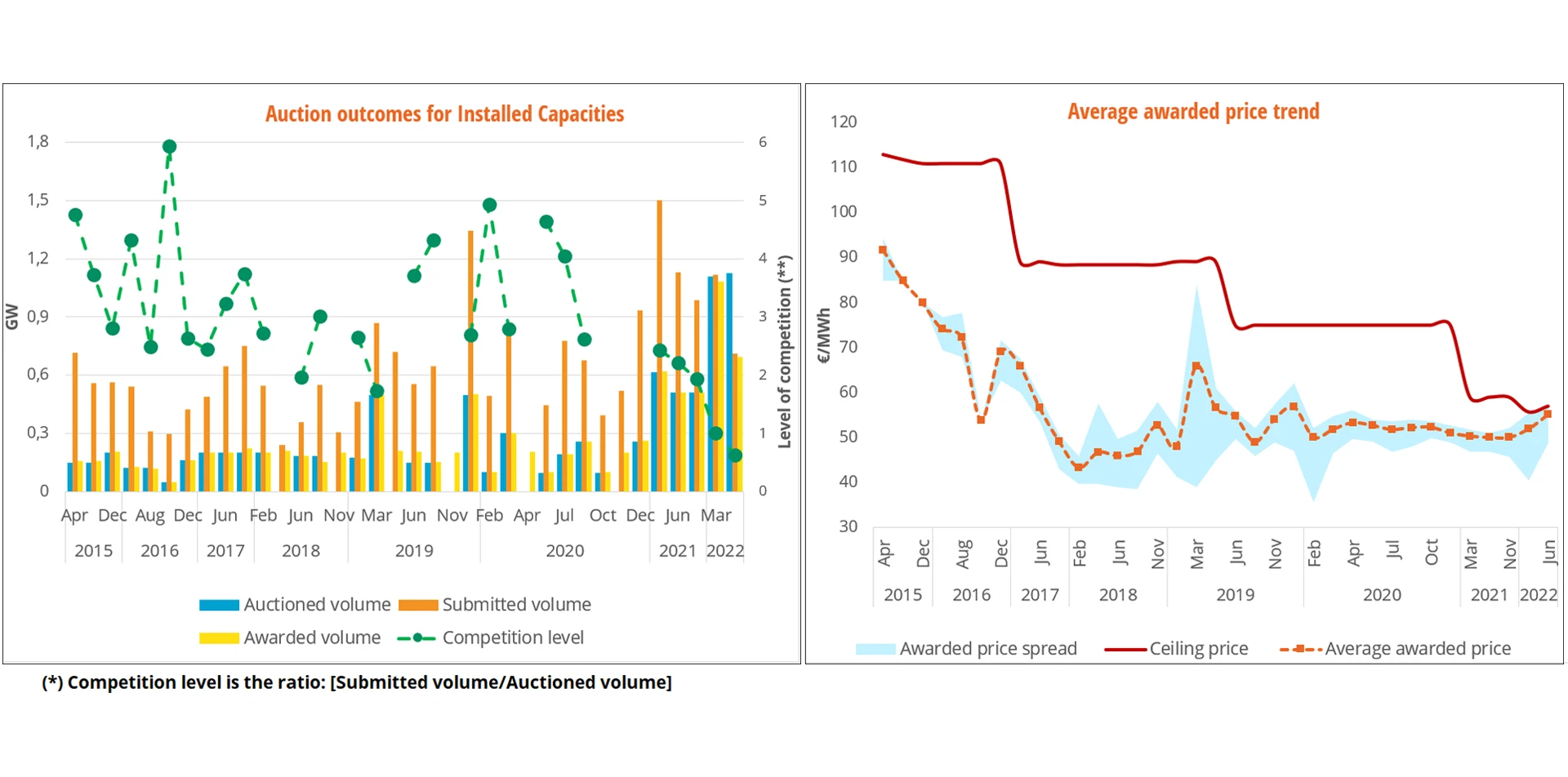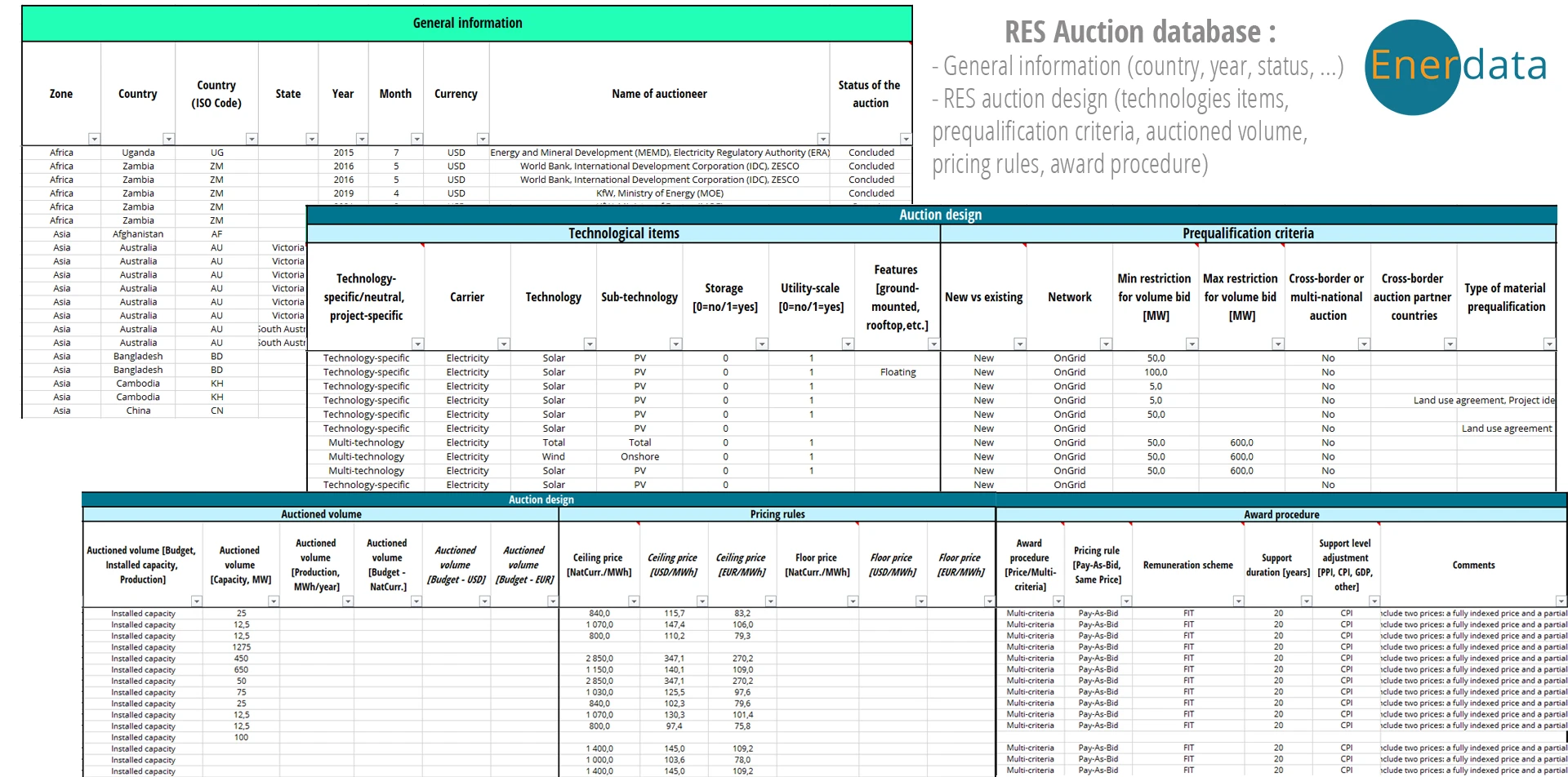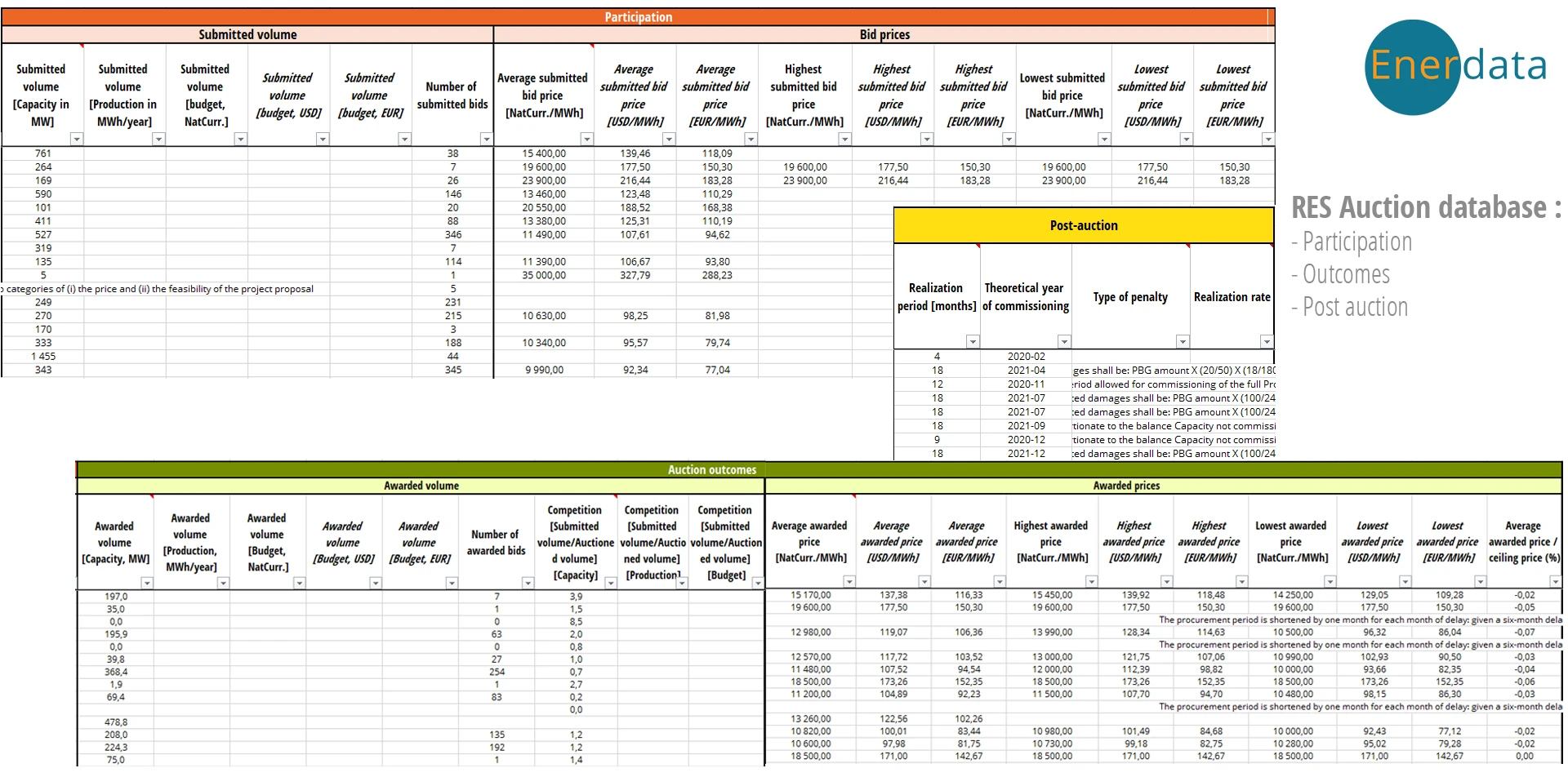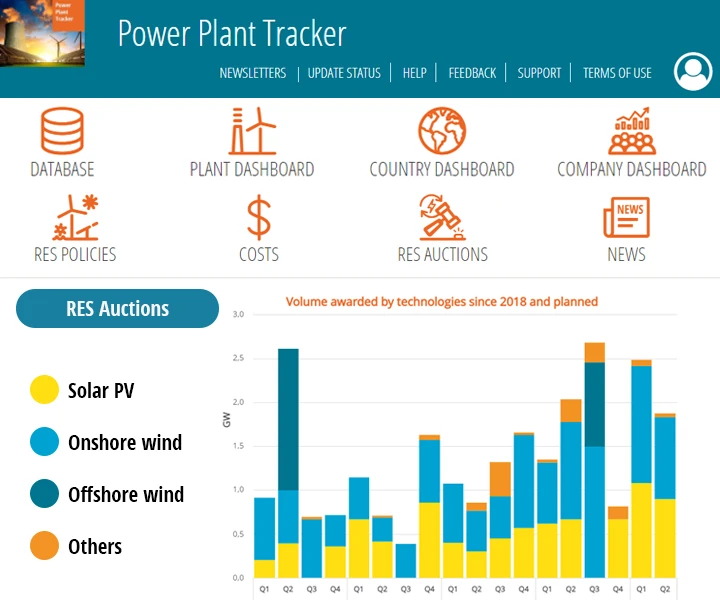To achieve their ever-increasing GHG emissions reduction targets, including, for many of them, carbon neutrality pledges, all countries are using renewable energies sources (RES) as one of the main levers. Public authorities are playing a major role as energy regulator to allow RES technologies to be competitive compared to conventional energy sources. This includes subsidies and remuneration schemes such as the feed-in-tariffs, feed-in-premiums mechanisms and, increasingly, more market-based support instruments and in particular auctions.
Enerdata’s RES auctions monitor is a very detailed, regularly updated database showcasing past and current auctions on a global level.
About RES Auctions
In the dynamic world of renewables, Governments show strong ambitions to fight climate change and lead energy transition via notably Carbon Neutrality pledges by the next decades. These agenda translate into targets in terms of RES share in national power capacity mix and final consumption to achieve. Thus, staged planning of new RES capacity development or existing RES upgrading are set out by the public authorities to set the course in the national RES strategy.
In the renewable market, public authorities are playing a major role as energy regulator enabling RES technologies to compete with incumbent fossil and nuclear technologies. As recent technologies supported by national energy strategies, RES capacity development has been and is still being subsidised by the Governments. Success in renewables is indissociable from public subsidy policies and remuneration schemes, such as the feed-in-tariffs and feed-in-premiums mechanisms.
Observing the significant fall in RES technologies costs (e.g. LCOE) over the past decade, Governments tend to rely more on market-based support instruments to reduce public-funded subsidies and let market and competition decide on RES prices and related revenues. Thus, Governments with the experience in other infrastructure fields such as the telecommunications are increasingly implementing competitive bidding procedures or auctions to offer a pre-determined RES volume of which prices are determined from the most competitive bids given by auction’s participants or bidders. RES auctions do not necessary exclude public support policies as the winning bids determine the level of prices often associated with a remuneration scheme, such as a feed-in-premium.
Key Benefits
- Excel database compiling raw data and qualitative information
- 60 information criteria about past and planned RES auction design and outcomes:
- General information such as auction scheme, date, name of the auctioneer and status
- Auction design
- General characteristics (technology, features, network, volume restrictions…)
- Prequalification
- Pricing rules
- Award procedure
- Participation/qualification (submitted bids and volumes, bid prices)
- Auction outcomes (price, volume)
- Post auction (realisation period, penalties if applicable, realisation rate)
- 64 countries covered, including Europe and main G20 countries
- Glossary covering auction structures and criterion
- Excel dashboard with graphs and charts on auction outcomes (i.e. awarded prices and volumes), and technology and country snapshots.
- Dashboards:
- 1 Global dashboard with:
- Key figures on the latest reported quarter
- Volume awarded by technologies per quarter and per region
- Top 10 Countries by awarded volume (MW) since 2017
- Volume awarded (MW) by region and technologies since 2017
- Volume awarded by technologies since 2017
- 1 Global dashboard with:
- 3 Country dashboards* for France, Germany and Italy with:
- Key figures on the latest reported quarter
- Volume awarded by technologies since 2018, and planned
- Cumulated awarded volume by technology since 2018
- Auction outcomes for installed capacities and average awarded price trend for solar PV, onshore & offshore wind
*Other country dashboards available on request.
Countries Covered
64 countries, including Europe and main G20 countries
EUROPE
Albania
Armenia
Croatia
Cyprus
Denmark
Estonia
Finland
France
Germany
Greece
Hungary
Ireland
Italy
Latvia
Lithuania
Luxembourg
Malta
Montenegro
Netherlands
North Macedonia
Poland
Portugal
Serbia
Slovenia
Spain
Türkiye (Turkey)
Ukraine
United Kingdom
Uzbekistan
AMERICA
Argentina
Brazil
Canada
Chile
Colombia
Ecuador
Mexico
Peru
Puerto Rico
United States
ASIA
Australia
Bangladesh
Cambodia
China
India
Japan
Malaysia
South Korea
Taiwan
MIDDLE EAST
Afghanistan
Jordan
Lebanon
Qatar
Saudi Arabia
United Arab Emirates
AFRICA
Algeria
Egypt
Morocco
Niger
Senegal
South Africa
Togo
Tunisia
Uganda
Zambia
Country snapshot on a specific technology
Technology snapshot

Sample of RES Auction database
General RES Auction database information (country, year, auctioneer name, status)

RES Auction design (technologies and prequalification criteria)

Related Products & Solutions
World Energy Efficiency & Demand Databases
Analyse energy consumption and efficiency trends at world level. Benchmark countries.
Database Management
Bring your users insightful outputs relevant to your business with Enerdata’s intuitive online interfaces.
Related services
Design and Interpret Energy Forecasts
Energy Forecasting is a 2 days training to learn to design and interpret energy forecasts.
Energy & Climate Statistics
Energy statistics training allowing to create energy balance with supply, transformation and consumption and understanding the international...
 Energy and Climate Databases
Energy and Climate Databases Market Analysis
Market Analysis